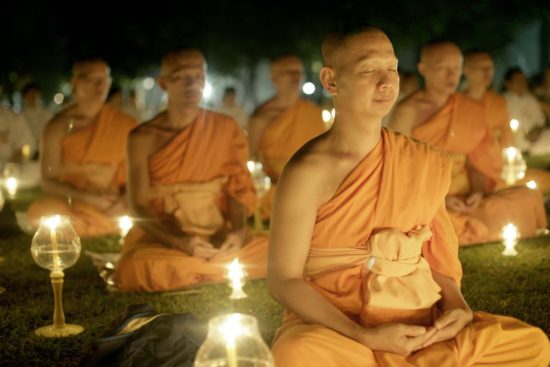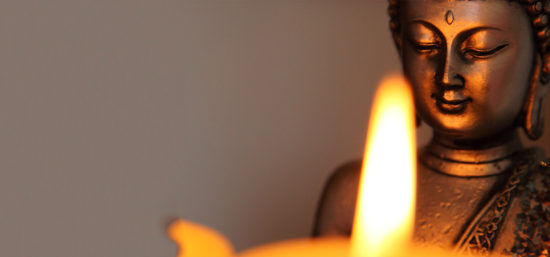Meditation as a whole and not just Buddhist meditation is a process that a person uses to calm the mind and body so one can become a way of a higher truth. Meditation has been incorporated in virtually all religions around the world. Of course, not all religions use the actual term “meditation”, it can be referred to as praying the rosary and so on.
Meditation is not always and does not need to be associated with religion, cultures or traditional value. Globally thousands of people that meditate daily who have no religious affiliation or even believe in God. Meditation can stand on its own without religion, in-fact this wholesome technique has many health benefits, physically psychologically, mentally, emotionally. A successful meditation is when the one can conquer the mind and the deed with the need of luxuries. This is an incredibly ancient art of health and wealth which cores the sustainability and stability of healthy living.
The Goal of Buddhist Meditation
Meditation does not have the goal of contacting religious figures, seeing the future or any other focused scenario. In Buddhist meditation, the mind and body are joined together as one. Through Buddhist meditation the goal becomes “no goal” and the mind becomes silent with an increased awareness. Another way of stating this is, in Buddhist meditation, is performed for the sake of self-centered identity with wisdom, peace, health, quality living, control over anger, anxiety, and stress.
Purpose of Buddhist Meditation
The purpose of Buddhist meditation is to still the mind and stop the never-ending flow of thoughts we all have. There are several different ways to perform Buddhist meditation. These Buddhist meditation techniques have been practiced for a long time and are proven to work. There are no right or wrong places to practice Buddhist meditation. It has been shown that when Buddhist meditation is practiced in a group that the meditation experience is much deeper.
It is also known that when this kind of meditation is practiced in the same place at the same time the meditation becomes deeper much faster. Of course, these things are not required, but will only aid the meditator.
There are several passages from the Buddhist scripture that point to the fact that our mental states, thoughts, and emotions are the determining factor to literally everything in our lives. If our thoughts and emotions lean towards hatred and contempt our worldly experiences will reflect this.
The same is true if we lean towards peace, love, and compassion, our world will reflect this. Buddhist meditation is turning inward away from the outside world and cultivating the inner world. By doing this the outer world we experience is transformed. With the practice of Buddhist meditation, we most encourage certain inner states to grow and flourish. These states are concentrated, calmness and focus.
Ways To Practice Buddhist Meditation
The first is to concentrate on your breathing. Sit in a comfortable position with your spine straight, but not rigid. Next, focus the mind with eyes closed on your breath coming in and out of your lungs.
Do not try to control your breath, let it flow naturally. You may notice at first your breathing speeding up. Do not worry, this is normal and will soon quiet down. You will also find that your mind wanders and thoughts come racing in. Again, this is normal, just bring your concentration, gently back to your breath coming in and out of your lungs. Try to practice this for about 20 minutes each day.


